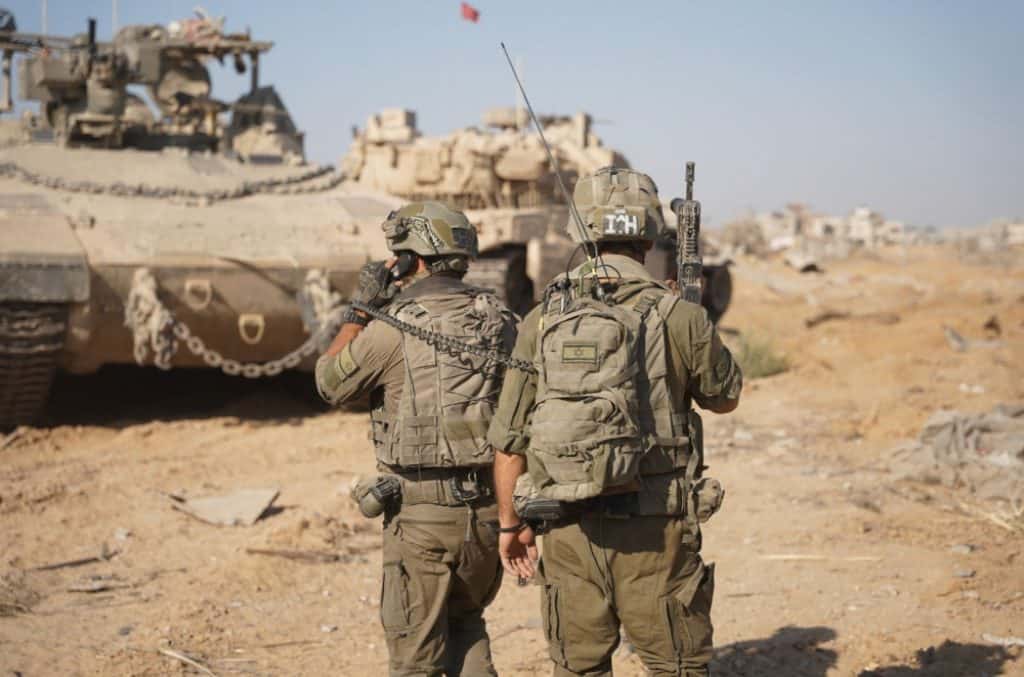
The Israel Defense Forces (IDF) called on Palestinian civilians to evacuate several neighborhoods near the southern Gaza city of Khan Younis as Hamas continued terrorist activity in the area. The calls for civilians to leave portions of Gaza’s south come as the IDF is on alert for a possible attack by Iran or its proxies, including Hezbollah. These concerns about an Iranian-led attack have continued for two weeks since the killing of Hamas leader Ismail Haniyeh in Tehran on July 31.
The battles against Hamas in neighborhoods near Khan Younis and the southern Gaza city of Rafah in the first two weeks of August took place as Hamas attempted to show it still possesses long-range rockets in Gaza. On August 13, Hamas tried to fire two rockets at Tel Aviv, one of which landed in the sea off the coast of Israel, while the other failed to launch properly.
For seven months, rocket fire from Gaza has dramatically reduced, and Hamas and other terror groups have been unable to fire large barrages at major Israeli cities. Hamas and Palestinian Islamic Jihad have occasionally tried to target Ashdod and Ashkelon every month, but their rocket threat today largely consists of either short-range barrages or single medium- or long-range rocket-fire attempts.
On August 10, the IDF called on Palestinian civilians to leave an area west of Khan Younis. The following day, the IDF said that terrorists had used an area of the humanitarian zone in Gaza for “terrorist acts.” The Israeli military noted, “Due to significant terrorist activity, exploitation of the Humanitarian Area for terrorist activity and rocket fire toward the State of Israel from the Aljalaa area, remaining in this area has become dangerous.”
On August 13, the IDF expanded the evacuation order to the Bani Suheila area of Gaza near Khan Younis, asking civilians to leave an area from which rockets had been fired. “The calls for the temporary evacuation are being communicated to residents through SMS messages, recorded voice messages, phone calls, media broadcasts in Arabic and flyers.”
The IDF’s 98th Division, which operated in Khan Younis from December to April 2024, was sent back to the city over the last two months, continuing the types of incursions that have become the norm in the area. They consist of precise, targeted raids using commandos and infantry backed by tanks and airstrikes.
In a recent raid in Khan Younis, IDF Sergeant Omer Ginzburg of the 101st Battalion of the Paratroopers Brigade was killed, the IDF said on August 11. This brings the total of IDF casualties to 690 killed since the Hamas attack on October 7, 2023.
“For 10 months, we have been operating in Gaza, and we do not forget for a moment the hostages being cruelly held by Hamas in Gaza,” IDF spokesperson Rear Admiral Daniel Hagari said on August 12. “The IDF and all of the security agencies are making every effort to create the conditions for their return as quickly as possible. This is our moral and ethical duty, and above all—it is an objective of the war,” he said.
In Rafah, Israeli forces have been operating since May 2024. They continue to find terrorists and terrorist infrastructure, such as tunnel shafts. In one incident, Israeli troops were fired on from an area near a humanitarian route that links Israel’s border crossing of Kerem Shalom with other parts of Gaza. “Consequentially, movement and coordination along the Humanitarian Route has been temporarily halted as the area now constitutes an active combat zone,” the Israeli military noted on August 13.
The IDF also said it had uncovered other types of unspecified terrorist infrastructure and struck an area “from which projectiles were launched toward Kibbutz Kissufim.” Kissufim is an Israeli community near the Gaza border and Khan Younis. In addition, the IDF hit around 30 targets across Gaza on August 10 and August 11. The fighting in Gaza in the first two weeks of August continued in the same pattern as in July.
Hamas chose Yahya Sinwar to replace Haniyeh as the head of the group in Gaza a week after Haniyeh was killed. This situation potentially sets up Sinwar to lead Hamas both in Gaza as it continues to fight Israel and abroad as it seeks to shore up political support from Iran, Russia, China, Turkey, and other countries. Alliances are more critical for Hamas, as the group’s attacks in Gaza remain relatively small compared to the organization’s capabilities a year ago.







